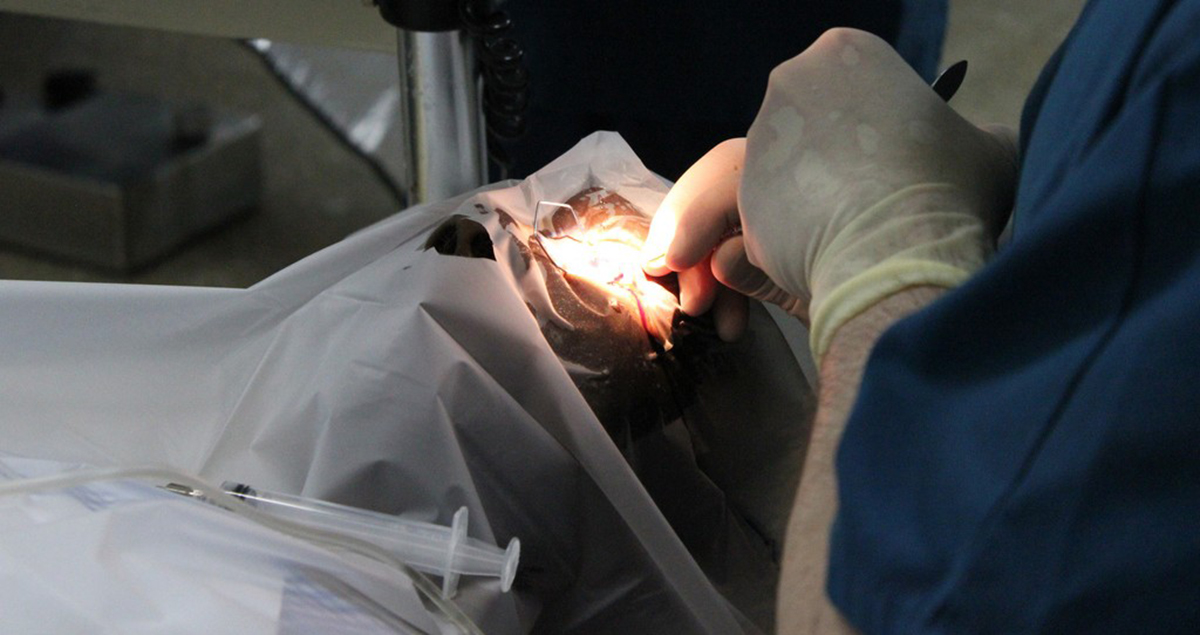Table of Contents
When the doctor took off the bandages I could see clearly again. No blur (even though I have a cataract in the other eye that hasn't been operated on yet), all the colors you would expect, in fine detail. I was handed a card for my next appointment. I could read it. I could see the numbers on the buttons in the elevator.

It wasn't until I got outside the office building, however, that I noticed the real difference. I had depth perception again. I didn't even realize I had been seeing the world in 2-D. And I could see leaves on trees and petals on flowers and bricks on the sides of buildings.
I'm convinced cataract surgery was right for me. And here is what I can share about it.
Does cataract surgery hurt?
For me, the procedure itself was completely painless.
The doctor will tell you not to rub your eye. If you start to do that, you probably will quickly stop.
Do you have to wear dark glasses after surgery?
I did, although I didn't have a lot of trouble with bright sunlight. Because I take blood thinners I couldn't stop, my eye is red, and I were the glasses in social situations.
Was it difficult to prepare for the surgery?
No, there was just the standard nil per orum (no eating, no drinking, not even water) order after midnight the night before. Most doctors do a number of cataract procedures the same day. My doctor scheduled them in order of age, children first, then older adults, then younger adults. I was the youngest adult, so my surgery was about two in the afternoon.
Do you need reading glasses now?
No, the doctor implanted a bifocal lens into my eye. I don't need any glasses at all.
But you said you were legally blind before the procedure and you only had one eye operated on.
I'm surprised, myself. Apparently I have enough residual sight in my other eye that my brain gives me depth perception and a clear field of vision.
Do you have to take eye drops?
I take an anti-inflammatory eye drop and then an anti-fungal eye drop a couple of minutes later. My doctor told me I have to take them for at least two weeks.
What about exercise?
My doctor told me I had no restrictions of any kind (I can pick up whatever I need to, bend from the waist, go to the gym, and so on), but I should not (1) pet an animal or (2) do any kind of yard work. The problem is molds and fungi in dead leaves and grass. No sooner did I step outside his office building than I got blasted by a leaf blower, but I was wearing my protective glasses, and I'm taking my eye drops.
Did you have a black eye after surgery?
Yes. Not everyone does. The doctor injected anesthetic into my eye through the lower ey lid, leaving some bruising.
Do you feel the new lens?
No, although I hasten to say that rubbing your eye is really something you don't want to do after cataract surgery. It would hurt, a lot, and could interfere with healing of the incision.
You said your doctor did something so you could have the procedure despite being on blood thinners. What was that?
My doctor used a process called phacoemulsification. He made a tiny incision on the side of the lens and placed an ultrasound probe into the old lens. The ultrasound broke up the lens, and suctioned out the pieces with a micropipette. Then he inserted a new lens that unfolded once it was inside the eye. The other commonly used procedure is extracapsulation, in which the doctor makes a longer incision and removes the lens in one piece.
See Also: Cholesterol-Lowering Drugs Linked To Increased Risk Of Cataracts: Ten Things You Need To Know
Fortunately, surgical treatment is simple, nearly painless, and highly effective.
- Nagy ZZ. New technology update: femtosecond laser in cataract surgery.Clin Ophthalmol. 2014 Jun 18. 8:1157-67. doi: 10.2147/OPTH.S36040. eCollection 2014. Review. PMID: 24970994 [PubMed]
- Photo courtesy of US Army Africa by Flickr : www.flickr.com/photos/usarmyafrica/6875510627
- Photo courtesy of US Army Africa by Flickr : www.flickr.com/photos/usarmyafrica/5707265800
- https://nihseniorhealth.gov/cataract/faq/faq13.htmll http://www.utmb.edu/ovs/2012-06-dont-be-afraid-of-cataract-surgery.asp


Your thoughts on this